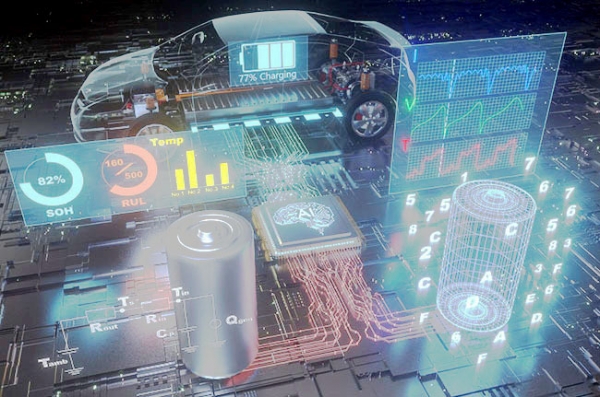
Recently, electric vehicles (EVs) are everywhere, from passenger cars, and buses, to taxis. EVs have the advantage of being eco-friendly and having low maintenance costs, but their owners must remain wary of fatal accidents in case the battery runs out or reaches the end of its life. Therefore, precise capacity and lifespan predictions for lithium-ion batteries – commonly used in EVs – are vital.
A joint research team led by Professor Seungchul Lee (ME), Ph.D. candidate Sung Wook Kim (ME Ph.D. Candidate, advisor Prof. Seungchul Lee), and Prof. Ki-Yong Oh (Hanyang University) conducted research to develop a novel artificial intelligence (AI) technology that can accurately predict the capacity and lifespan of lithium-ion batteries. This research breakthrough, which considerably improved prediction accuracy by merging physical domain knowledge with AI, has recently been published in Applied Energy, an international academic journal in the energy field.
There are two methods of predicting battery capacity: a physics-based model, which simplifies the intricate internal structure of batteries, and an AI model, which uses the electrical and mechanical responses of batteries. However, the conventional AI model requires large amounts of data for training. In addition, when applied to untrained data, its prediction accuracy was very low, which greatly called for the emergence of a next-generation AI technology.
To effectively predict battery capacity with less training data, the research team combined a feature extraction strategy that differs from conventional methods by using physical domain knowledge-based artificial neural networks (ANNs). As a result, the battery prediction accuracy for testing batteries with various capacities and lifespan distributions improved by up to 20%.
Prof. Lee remarked, “The limitations of data-based AI have been overcome using physics knowledge. The difficulty of building big data has also been alleviated thanks to the development of the differentiated feature extraction technique.” Prof. Oh added, “Our research is significant in that it will contribute to propagate EVs to the public by enabling accurate predictions of the remaining lifespan of batteries in next-generational EVs.”


